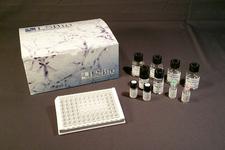order histories, retained contact details for faster checkout, review submissions, and special promotions.
Forgot password?
order histories, retained contact details for faster checkout, review submissions, and special promotions.
Locations
Orders Processing,
Shipping & Receiving,
Warehouse
2 Shaker Rd Suites
B001/B101
Shirley, MA 01464
Production Lab
Floor 6, Suite 620
20700 44th Avenue W
Lynnwood, WA 98036
Telephone Numbers
Tel: +1 (206) 374-1102
Fax: +1 (206) 577-4565
Contact Us
Additional Contact Details
order histories, retained contact details for faster checkout, review submissions, and special promotions.
Forgot password?
order histories, retained contact details for faster checkout, review submissions, and special promotions.
TNP1 / TP1
transition protein 1 (during histone to protamine replacement)
In the elongating spermatids of mammals, the conversion of nucleosomal chromatin to the compact, non-nucleosomal form found in the sperm nucleus is associated with the appearance of a small set of basic chromosomal transition proteins.
| Gene Name: | transition protein 1 (during histone to protamine replacement) |
| Synonyms: | TNP1, STP-1, TP-1, TP1 |
| Target Sequences: | NM_003284 NP_003275.1 P09430 |

If you do not find the reagent or information you require, please contact Customer.Support@LSBio.com to inquire about additional products in development.









